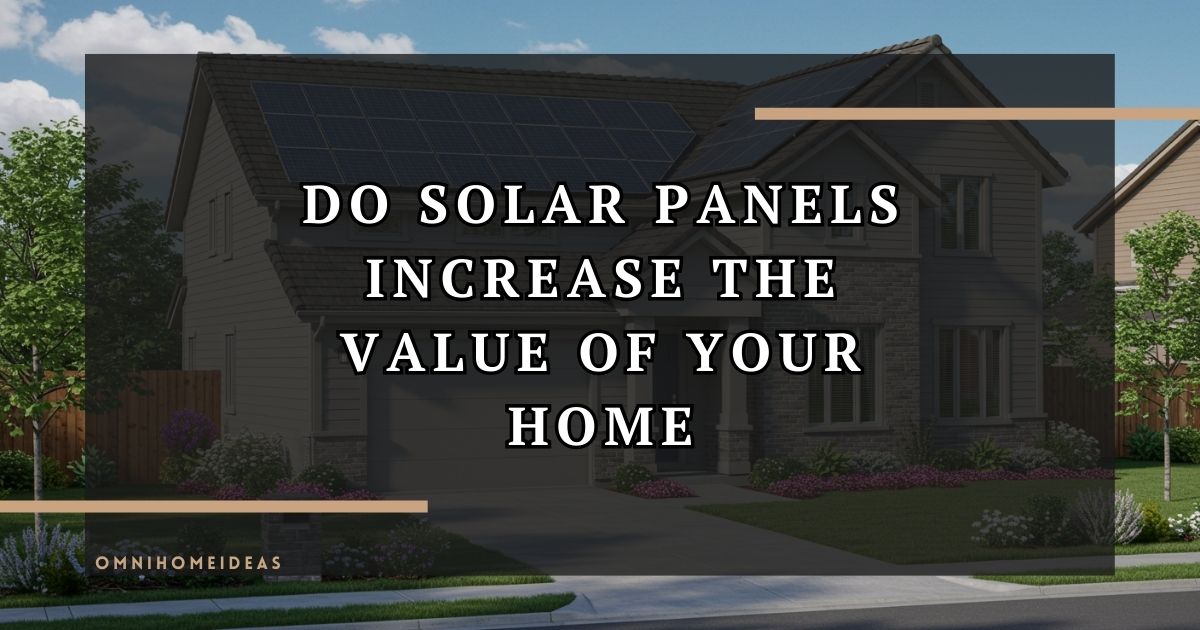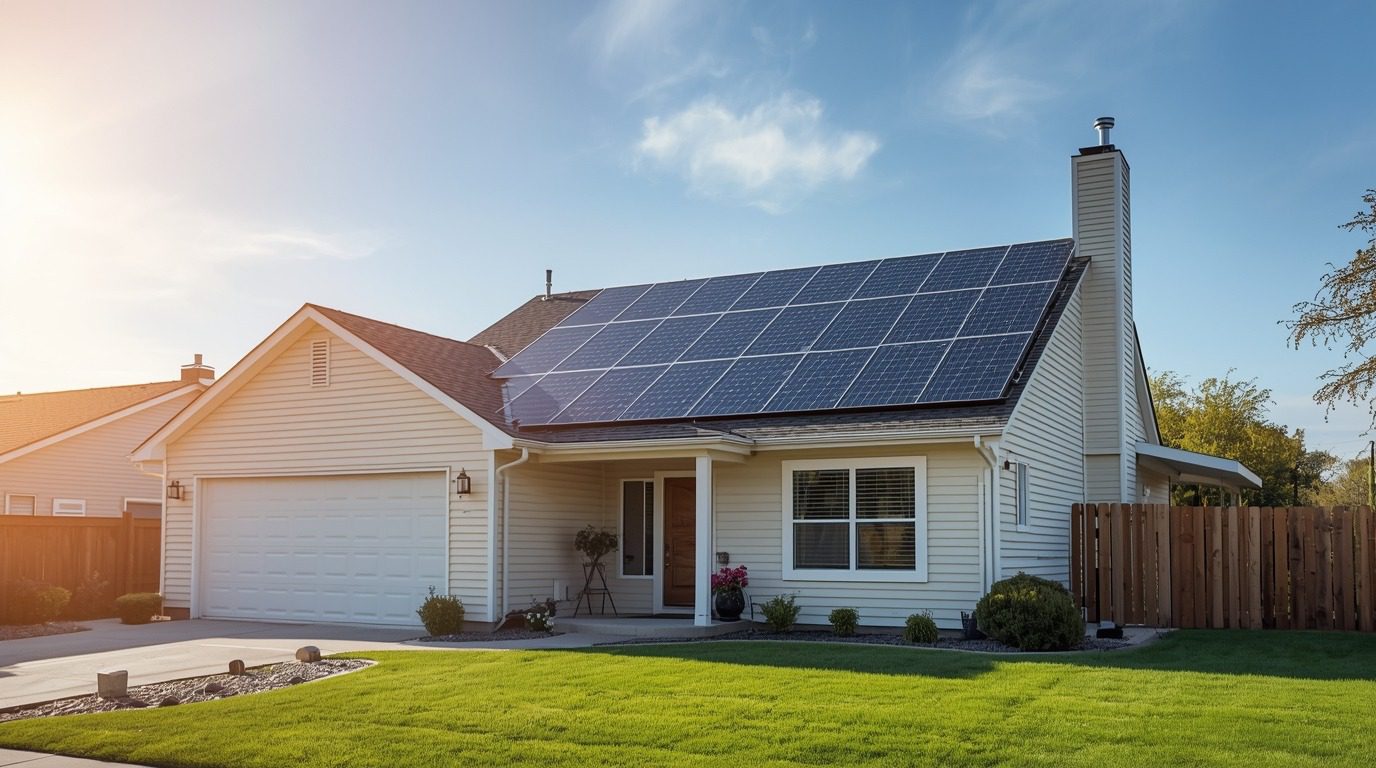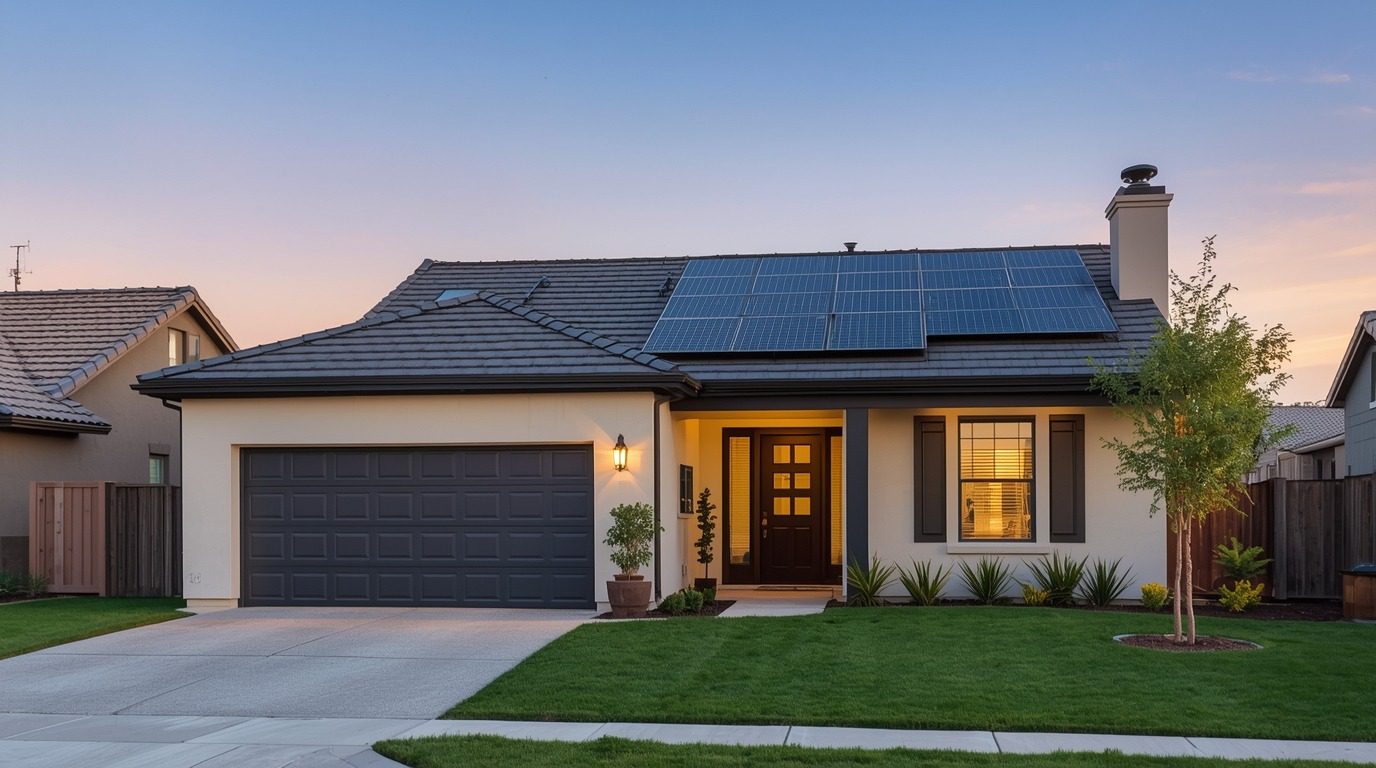Rising energy costs and a growing appetite for sustainable homes have left many homeowners scratching their heads: do solar panels actually bump up property value, or is it just another green fad? The answer isn’t as simple as a yes or no. With new research and shifting buyer preferences, the real impact of solar on resale price is more tangled than ever.
This guide takes a hard look at:
- How much value solar panels might add to homes in 2025 (if the trends hold)
- The key factors that seem to drive that value
- Why owned and leased solar systems are not created equal
- What actually helps maximize resale value with solar (hint: it’s not just slapping panels on the roof)

Quick Value Overview
It’s tempting to look for a quick answer, but the numbers don’t always tell the whole story. Even so, here’s what the latest research and market chatter suggest; though, as always, the fine print matters:
| Section | Actionable, Specific Takeaway |
| How Much Value Do Solar Panels Add? | Expect a 5–10% increase in home value for owned systems, with regional variation. |
| Key Factors That Influence Value | Ownership, system age, local market, and energy savings drive value; newer, owned systems add more. |
| Owned vs. Leased Solar Panels | Only owned solar panels reliably increase home value; leased systems rarely do. |
| Regional & Market Trends | Value boost is highest in solar-friendly states like California; some regions see less impact. |
| Buyer Preferences & Marketability | Energy savings, eco-appeal, and modern features attract buyers and speed up sales. |
| Maximizing Resale Value | Use quality installers, keep documentation, and maintain the system for best results. |
| Common Pitfalls & Buyer Concerns | Leased systems, poor documentation, and outdated panels can limit value gains. |
| Future Outlook & Incentives | Federal tax credits end in 2025; solar remains a strong investment for value and savings. |
But can a table really capture the quirks of the housing market? Not likely. Still, it’s a place to start.
How Much Value Do Solar Panels Add in 2025?
It’s easy to get swept up in the promise of a big return on solar panels, especially as installation costs keep dropping and energy bills keep climbing. But does the math really work out? Recent studies suggest a 5% to 10% bump in home value for owned systems, but the reality is messier. Location, system quality, and market mood all play a part.
A 2025 analysis by EnergySage claims homes with solar panels in California sold for $39,500 to $79,000 more than similar homes without solar. Sounds impressive, right? Nationally, SolarReviews reported an average 6.9% premium, about $25,000 to $29,000 for homes with solar. But averages can hide a lot of outliers. Some homes see less, some see more, and a few see no boost at all.
Latest Research & Statistics
Before anyone gets too excited, it’s worth noting that these numbers shift year to year, and not every source agrees. Still, the latest batch of reports includes:
- EnergySage (2025): 5–10% value increase for owned solar systems. (But what about leased ones? That’s a different story.)
- SolarReviews (2025): 6.9% average premium, up from 4.1% in 2019. (A jump, but is it sustainable?)
- SolarInsure (2025): Newer systems (under 5 years) add more value than older ones. (No surprise there.)
Real-World Examples & Case Studies
In solar-friendly states like California, a $750,000 home with a new solar system could see a $37,500 to $75,000 increase in value. That’s the theory, anyway. In other regions, the boost might be closer to 4–7%. But the trend is hard to ignore: buyers are paying more for homes with lower utility bills and modern energy features. Or at least, that’s what the data says; until the next market shift.
Key Factors That Influence Value Increase

It’s never just about the panels. Several factors shape how much value solar adds, and missing even one can mean the difference between a big payoff and a shrug from buyers.
1. Ownership vs. Lease
Ownership is the dealbreaker. Only owning solar panels reliably increases home value. Leased systems or third-party-owned panels (like power purchase agreements) rarely add value and can even make sales trickier. Buyers want the long-term savings and control that come with ownership, not a tangle of paperwork.
And for those eyeing the latest tech, advanced options like sun-tracking solar panels can push value even higher by squeezing out more energy and efficiency. But does every buyer care about cutting-edge features? That’s up for debate.
2. System Age, Size, and Technology
Newer systems with higher capacity and modern features (think battery storage or smart controls) tend to catch buyers’ eyes. Systems under five years old usually add more value than older ones; buyers expect a longer lifespan and up-to-date tech. But what happens when today’s “modern” becomes tomorrow’s outdated?
3. Local Market & Regional Trends
The value boost from solar is strongest in states with high solar adoption, steep electricity rates, and friendly policies. California leads the pack, but other states are catching up. In some places, though, the impact is muted, especially where energy costs are low or solar is still a novelty. Will that change as more people go solar? Only time will tell.
Buyer Preferences and Marketability

Buyers aren’t all the same, and their reasons for loving (or ignoring) solar panels are just as varied. Some want savings. Others want to feel good about their carbon footprint. And a few just like the look of a high-tech roof.
1. Energy Savings and ROI
Lower monthly utility bills are a big draw. Buyers are willing to pay more for homes that promise long-term savings, especially as energy prices keep inching up. The typical payback period for solar is 4–12 years, after which the savings go straight to the homeowner. But what if energy prices drop? Or if new tech makes old panels obsolete?
2. Eco-Friendly Appeal and Modern Features
Sustainability is climbing the list of buyer priorities. Solar panels, along with other upgrades like energy-efficient appliances or even stylish lighting such as Uttermost lamps, signal a commitment to both the environment and modern living. This combo can help a home stand out, but only if buyers are actually looking for it.
3. Speed of Sale and Buyer Demand
Homes with solar panels often sell faster than those without. The National Renewable Energy Laboratory says solar-equipped homes can sell up to 20% faster. But is that always true, or just in hot markets? The answer seems to depend on who’s buying and what else is on the market.
Common Fails and Buyer Concerns
Not every solar installation is a slam dunk. Some can even drag down value if handled poorly.
- Leased Systems and Transfer Issues
Leased solar panels rarely increase home value and can complicate the sales process. Buyers may balk at taking over a lease or might not qualify for the transfer, which can delay or derail a sale. Is it worth the risk? Many say no.
- Outdated or Poorly Maintained Panels
Older systems or those in poor condition may not deliver the expected savings, reducing their appeal. Regular maintenance and timely upgrades are essential, but not always enough if the tech is past its prime.
- Transparency and Buyer Education
Buyers often have questions about system performance, warranties, or future costs. Providing clear, detailed information can build trust and smooth the sales process. But even the best info can’t fix a system that’s seen better days.
Future Outlook for Solar and Home Value
The federal tax credit for residential solar is set to expire at the end of 2025. That alone could shake up the market. As technology advances and more buyers seek energy-efficient homes, solar’s impact on home value is likely to grow. Or maybe it’ll plateau; analysts are still arguing about what comes next.
“Buying a solar energy system will likely increase your home’s value. A recent study found that solar panels are viewed as upgrades, much like a renovated kitchen or a finished basement.” ; U.S. Department of Energy
But will that always be true? The market has a way of surprising everyone.
FAQs
Will solar prices drop in 2025?
Solar panel prices have steadily declined, reaching about $3 per watt in 2025 before incentives. While further drops are possible, most experts expect prices to stabilize as technology matures. But then again, predictions have been wrong before.
Do solar panels increase property taxes?
In many states, solar panels are exempt from property tax increases, but rules vary. It’s smart to check local regulations to confirm if your solar investment will affect your tax bill. Some areas change their minds on this every few years.
Do homes with solar sell faster?
Yes, homes with solar panels often sell more quickly, as buyers are drawn to energy savings and modern features. Some studies show solar homes sell up to 20% faster. But in slow markets, speed is anyone’s guess.
How much does solar increase home value in California?
In California, owned solar panels can add 5–10% to a home’s value, translating to $37,500–$75,000 for a $750,000 property. Of course, that’s if the buyer values solar as much as the seller does.

